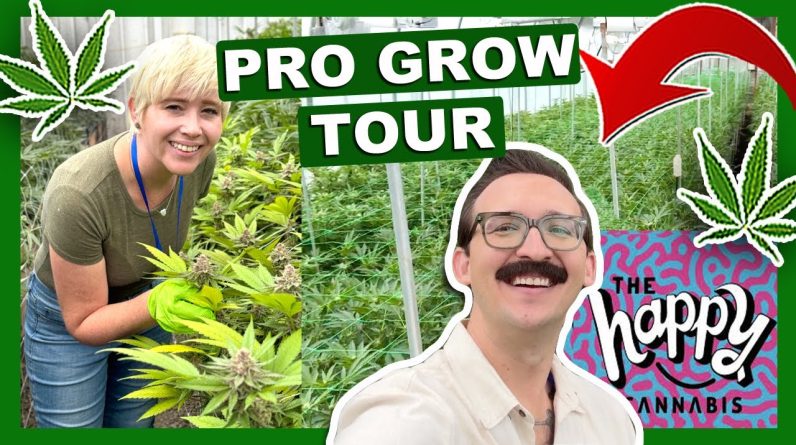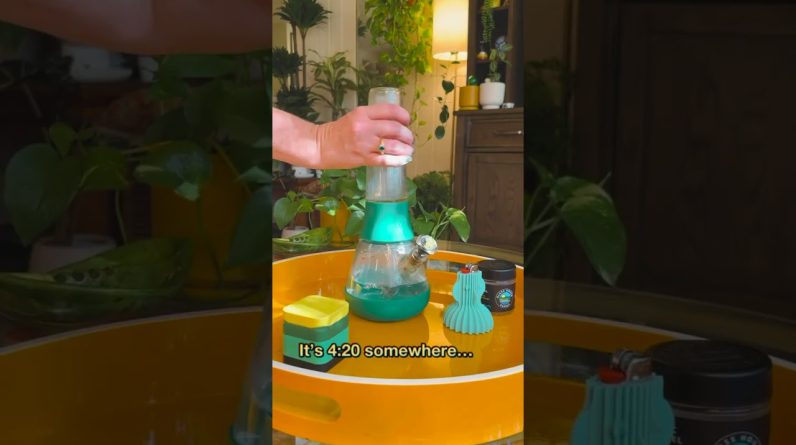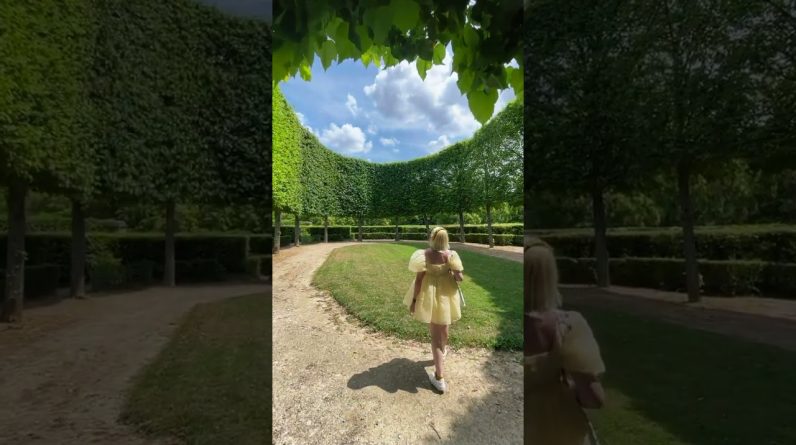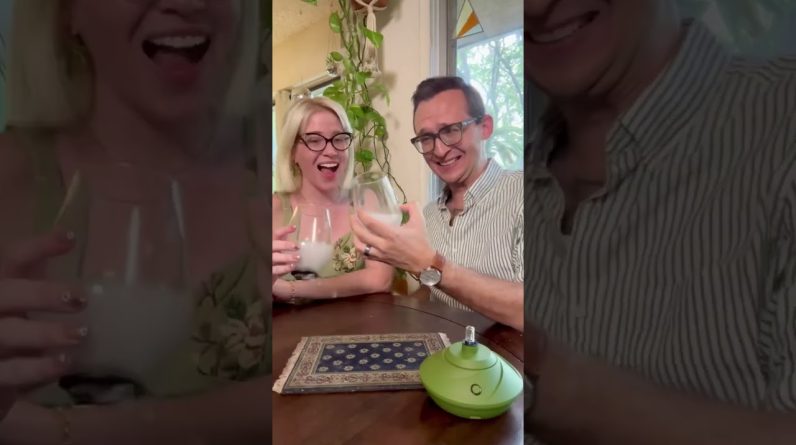If you’ve been around or involved in any way with cannabis pre-legalization, without a doubt, you know what the term “narc” means.
Many are familiar with the term “narc” because of platforms like Netflix, video games, or the 2002 film starring Ray Liota and Jason Patric. It would seem that few remember “narc” being a derogatory term for those who appeared to be an undercover cop, rat, or anyone deemed untrustworthy for a variety of reasons.
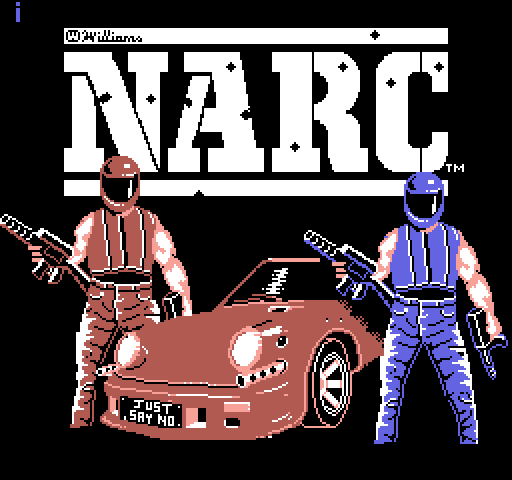
Urban Dictionary defines the word “narc” as follows:
1. n. Short for a Narcotics officer. A member of Law Enforcement that enforces drug laws.
2. n. A person who is not a member of Law Enforcement but turns you into the police for doing or dealing drugs.
3. n. A person that turns you in for something you did wrong; specifically to any type of authority figure like parents, cops, teachers, boss, etc.
4. v. The act of turning someone into law enforcement or authority figures
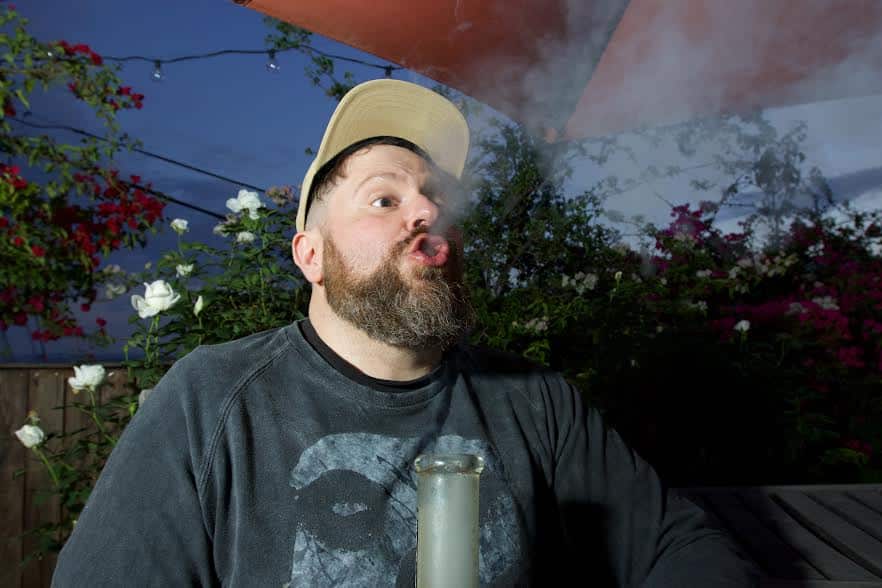
My name is Ben, and I’ve been a small town, low-level drug dealing, narc-hating, punk since I was fifteen. Weed has been a major part of my whole life. Dealing, advocacy, activism, and daily consumption have been a constant since I was a teenager. I love this shit. Weed is tight.
After years in cannabis PR, marketing, events, education, and content I’m currently partnered in a cannabis strategy, genetics, and content company. A few months ago I took a part-time job budtending at a friend’s dispensary where my brother works. I wanted to understand what cannabis looked like on the street now. I wanted to see all the brands and products and get a better grasp of the legal market. My business partners are global leaders in tissue culture, the cannabis industry, and have operated multi-media companies. I’m learning constantly from them. However, I think I’ve learned the most I have in years about cannabis by part-time budtending. Not only have I learned valuable information regarding the street level consumer, as it turns out, I learned that I also still love selling weed. I love the transaction. I love giving a legal receipt for cannabis. I thought the joy would wear off, but no, after months it still makes me happy to sell someone legal weed.
From Bottle Tokes of Hash to Narc PTSD: Required Reading
In 1994, a year after I was introduced to hash or any cannabis product at all, I had fallen in love with getting stoned. It activated me. In the early 90s it was still a very dark time for all controlled substances. Ronald Regan’s reignited War on Drugs was still running rampant even in Clinton’s America. In fact, in our area, the high school landscape was so uptight that an in-class presentation on the benefits of legalization presented by a chubby, narc-hating, 15-year-old punk could land someone in a lot of trouble. And it did. Two weeks of suspension, several warnings, lectures, and notified police.
At that time, flower was hard to find in our area. Most people living in small cities or towns in Ontario smoked hash in a manner of what’s known in our region as bottle tokes or “bots” for short.
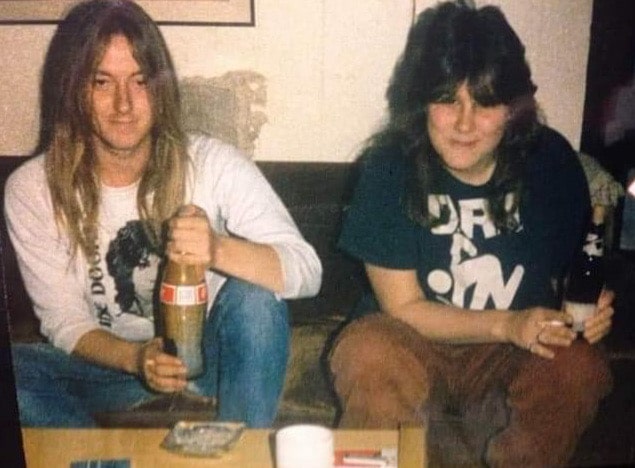
This was achieved by putting a dime in a beer bottle, scraping part of the bottom-side of the bottle on concrete to weaken a small portion of the bottle. Then, by snapping the dime in the bottle with your wrists, the dime would pop a hole close to the base. Once a sufficient hole was made, the next step was to use a lit cigarette to tap small nuggets of hash (bots) until they stuck on the lit cigarette and then cook the nugget in the bottle. Once the hash turned amber red, the bottle toke would be inhaled through the top of the bottle. (Welcome to Canada fuckers.)
There was no shortage of a market. Selling hash, acid, and oil at local punk, metal, and indie shows was commonplace for a lot of kids growing up in Southern Ontario. After shows, parking lots would be littered with resin soaked “bot bottles”.
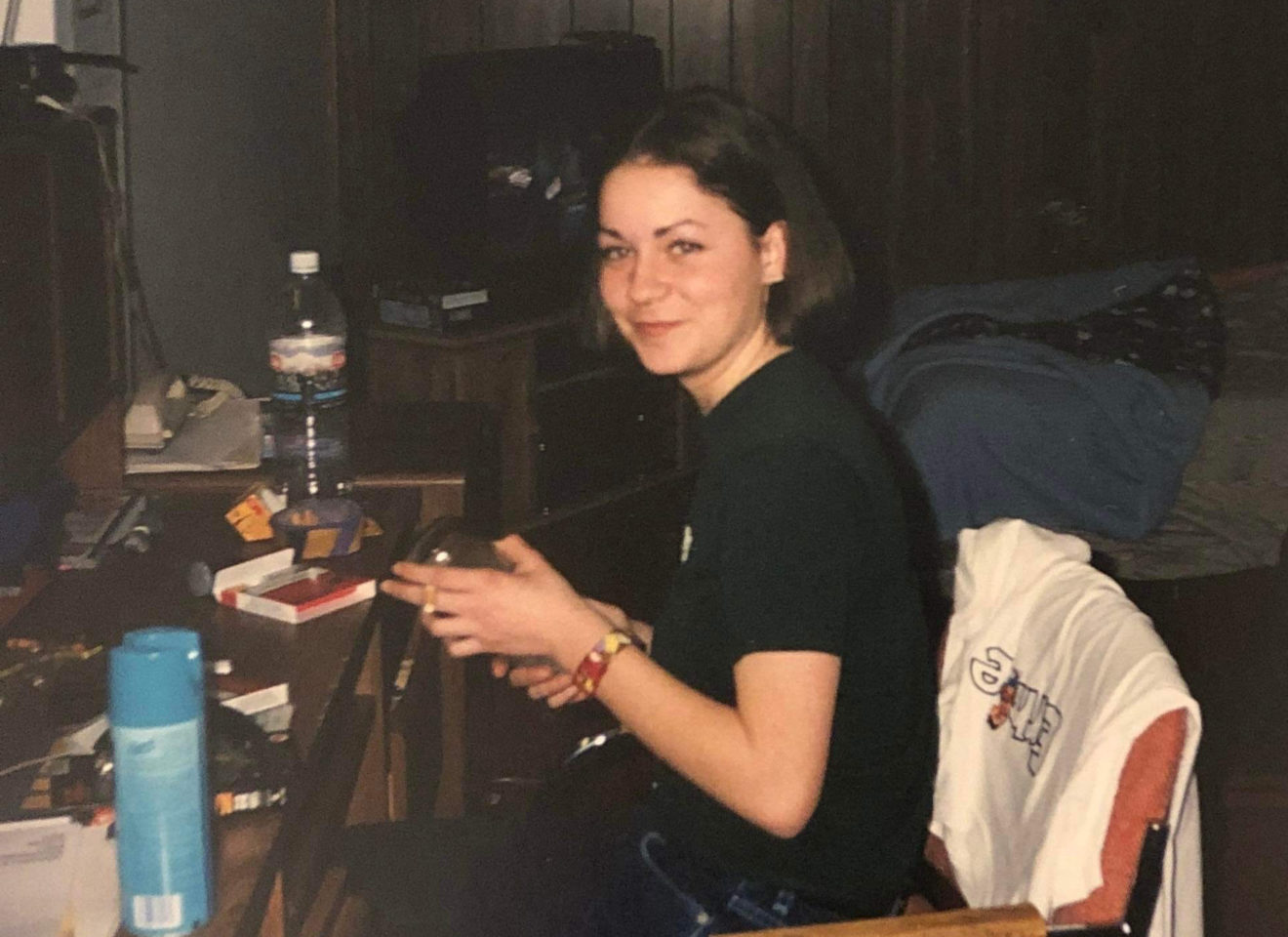
Reckless abandonment made possible by some heavy hitters who became mentors in a scene that opened doors to the wide world of drug dealing for many young people. As one can imagine, an important, traditional lesson taught to ambitious young drug dealers was how to look out for Narcs.
- Find out who knows them in your area. Do they have friends?
- See how well they do in school and watch their relationships with authority.
- If they don’t do drugs with you, keep them the fuck away.
- If they don’t do a lot of drugs with you, keep them the fuck away.
The narc vetting process became an instinct for any social or professional situation that applied.
- Do they have references?
- What is their education and background?
- Do they know and understand the product they are selling, building, or promoting?
Narc suspicion would become ingrained in so many people of this generation that narc PTSD is commonplace. Narc or cop awareness can be compared to instincts such as gaydar. It was a tribal and paranoid time invoked by American television programs like 21 Jump Street.
Thankfully, society has begun moving past prohibition. Licensed producers of cannabis will never have to worry about narcs in the same fashion.
It Ain’t Easy Selling Green if You’re Green to Selling Weed
The licensed producer has a whole other set of concerns. Over-regulation, appeasing shareholders, heavy taxation, and a competitive market have left many grasping at straws.
In Canada, cannabis marketing regulations are strict. It’s difficult for licensed producers and their brands to build an audience. What begins to happen are narrative trends and themes tend to overshadow what a brand’s intentions are or who their identity is.
If you’re a budtender, connoisseur, or in the space at all, you’ve most likely spoken to dozens if not hundreds of cannabis sale representatives or brands. This is not to put down or be negative towards sales reps or to paint all licensed producers with the same brush, but many have opted to paint themselves into a corner.
At the end of the day, when the romance wears off, the job of a sales rep is a thankless one. It’s extremely difficult and it takes a distinctive personality to succeed. However, a sales rep’s success is only defined by the product the rep is selling. No matter how professional, well spoken, or pleasant, if the weed sucks, the weed sucks. It’s nothing personal. The retailer’s job is selling weed. The consumer decides what they will or won’t buy. Or more importantly, what they’ll buy again.
The cannabis marketplace is extremely competitive with massive amounts of audience crossover and new brands launching everyday. The result is companies start to “borrow” messaging from one another as regulations lighten and consumer interests change.

Recently, the average legal cannabis consumer is looking for companies who know good cannabis and don’t want negative connotations associated with their purchase. Many are aware of the challenges several publicly traded licensed producers are having. Hundreds of staff layoffs while CEOs continue to get rich is not something cannabis consumers tend to want to support. The consumer doesn’t want to give their money to a company they perceive to be “corporate cannabis.” This sentiment has made it increasingly difficult for many licensed producers who have struggled to find authentic messaging.
Stigma, Tegridy, Legacy: The Different Eras of Legal Cannabis Messaging
In the early days of legalization, the overarching narrative was “getting the meds to the patients.” It was fashionable to present altruistically with a message of “Breaking the Stigma.” A rebranding of what traditional cannabis users looked like. To show that it wasn’t just hippies, skaters, and rappers that liked getting high. This isn’t to say breaking stigmas and getting people their medications aren’t great things, but it is to say, many of these companies were less than genuine with their approach and intentions. This altruistic image became incredibly difficult to maintain when publicly traded companies were publicly taking billions of the public’s money.
After the altruistic-stigma-breaking-narrative ran its course, the market balanced out a bit and responsible spending messaging seemed to take the shape of the “seed to sale farmer.”
The-down-home-weed-farmer with grit and love for the plant became the new mascot of an industry beginning to reveal itself as a far more risky investment than previously thought. Belushi Farms captures this essence in a sincere way, but many brands coming to market ran hard with style of marketing.
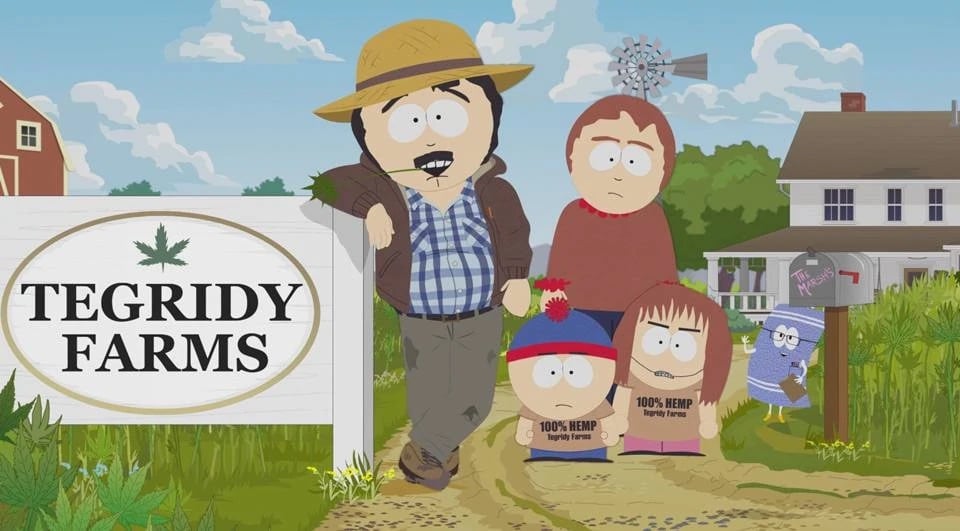
This era’s narrative has been successfully lampooned time and time again by South Park, in the form of Randy Marsh’s cannabis company, Tegridy Farms.
The Tegridy Era presented a narrative that quality cannabis companies cared less about profits and more about quality. The valuable blue-collar work ethic of a family-run business, is not only a rich heritage, but only worthwhile if built on a foundation of integrity. At this point, a trope in itself.
The Tegridy Era was hard to maintain. Mostly because many companies came to the realization that being a farmer is crazy fucking hard. There was so much upkeep that the cow shit jokes wrote themselves.
Recently, it would seem a new shift has taken place. A new era is upon us. In this new dawn the buzzword around the boardroom has turned to “Legacy”. Grandstanding Founders, VPs and Executives pat each other on the back, regaling a story of their CEO who got high and sold an eighth of weed at a party once, has made its way into every investment, or corporate introduction deck.
Welcome to the Legacy Era. Fuck Your Tegridy.
For those unfamiliar with the term “legacy,” it refers to the cannabis industry and all of its facets, pre-legalization. Other common terms are “the traditional market” and the commonly used yet frowned upon, “black market.”
Here, in Canada, the Legacy Era trend blew up with the launch of Toronto, Ontario based brand Ghost Drops. A well known “legacy brand” who brings rare strains to the legal market.
The brand built a massive audience when it was announced that Toronto hip-hop artist Organik, who is also known for founding Toronto’s premier battle rap competition, King of The Dot (KOTD), was bringing his well known legacy strains to the masses under his Ghost Drops brand.
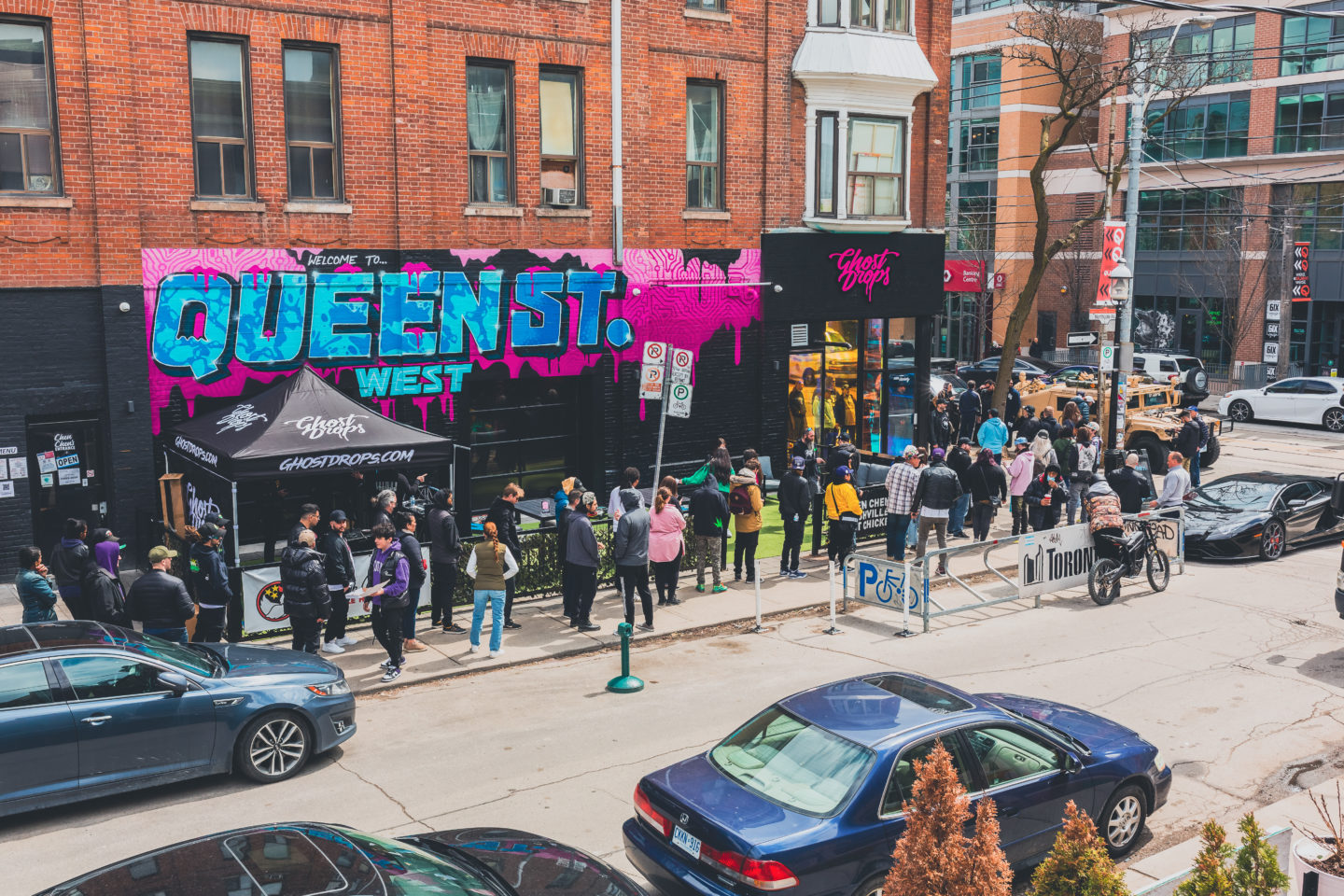
So naturally, Ghost Drops and Organik have not only well established street credibility, but an organic (pun intended) following who appreciates what they’ve offered the community for years. Quality product and entertainment for their well curated audience.
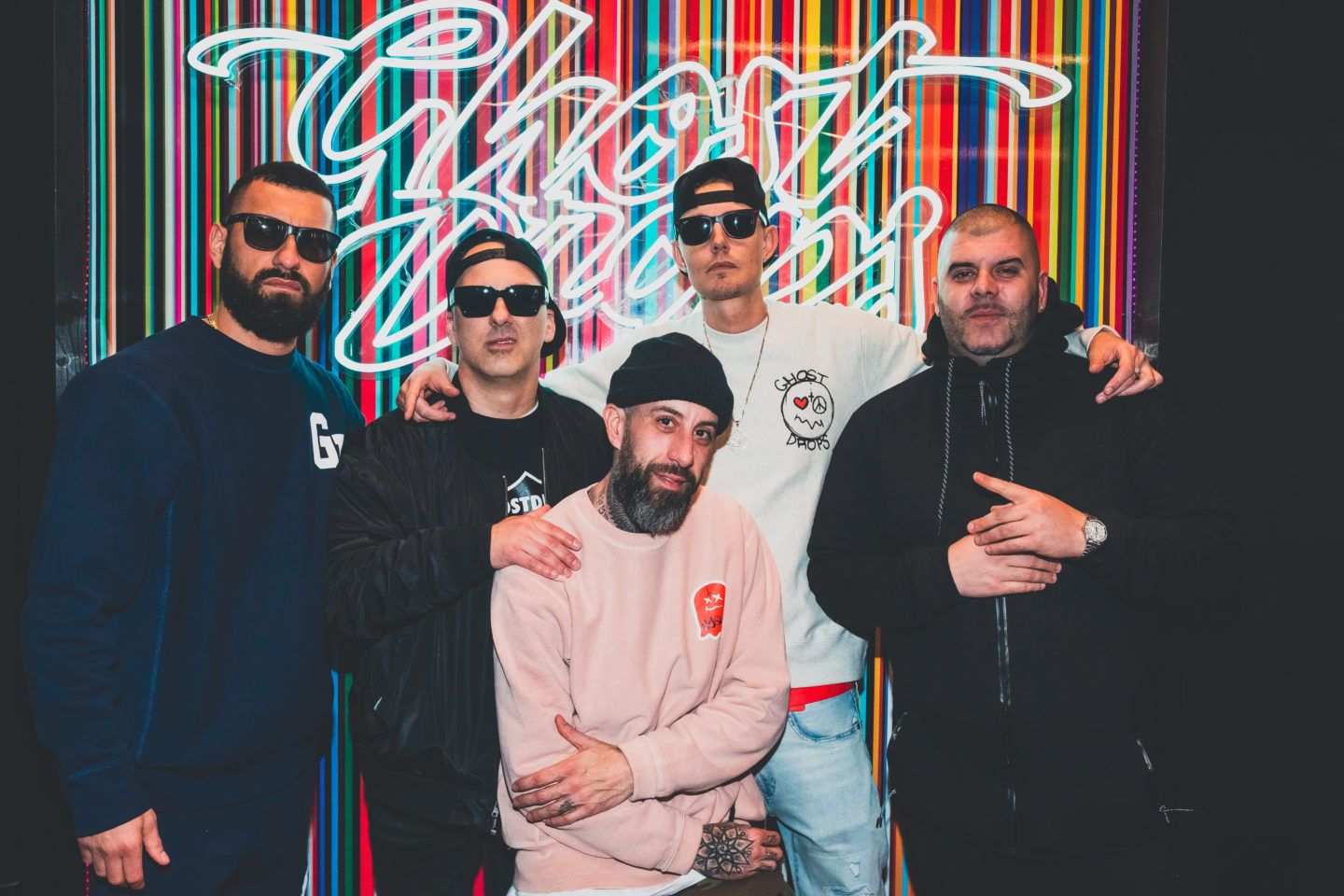
How to Succeed in Weed: Quit It With the Narc Vibes
When executives don’t understand a subculture and try to replicate something like the success of Ghost Drops, historically, it never plays out with any sort of substance or connection. Many have tried replicating the core culture of skateboarding and have rarely succeeded. Large in part being most shareholders or executives don’t smash their faces off concrete for fun.
Hopefully, these struggling licensed producers come to understand that Organik, or those like him, didn’t set out to be a legacy brand. They stayed true to who they were and are still.
Those who try to recreate how they see others succeed, especially when claiming to have more credibility in an industry than they qualify for, should understand that anyone who was championing cannabis prior to legalization will see through them. It’s why actual narcs have to go undercover for years at a time. Perpetrators don’t even know what they’re getting wrong. It’s in the language, it’s in your movements, it’s how you smoke.
Whether a consumer, entrepreneur, dealer, basement grower, advocate, fanatic, activist, patient, or long time High Times reader, all will likely pick up on your narc vibes from miles away.
With the myriad of companies, new strains, new strain names for old strains, an endless barrage of new products, new technologies, coupled with the hundreds of SKU struggling retailers already have to sort through; no one has time to be disingenuous or time for those who are. The best brands will always tell an honest story and have great products.
Legalization is a great thing. It should be celebrated and respected. It is extremely disrespectful to appropriate the legacy culture to make your brand seem cool. Many sacrifices were made so we could make legalization as positive and inclusive as possible.
When I look at the current state of legalization I see hope. It’s our job to make the cannabis industry better, and many are putting in the hard work. I’m grateful that stoners aren’t the pariahs of society anymore. I’m happy we won. With so many products that are now available, I’m grateful that smoking bots off a cigarette in a beer bottle is still an option, just not the only one.
At this time, all that we require of licensed producers is an authentic story, a respect for the consumer, great fucking weed, and to lose the narc vibes.
We’ll do the rest.
The post The New Narc appeared first on High Times.
